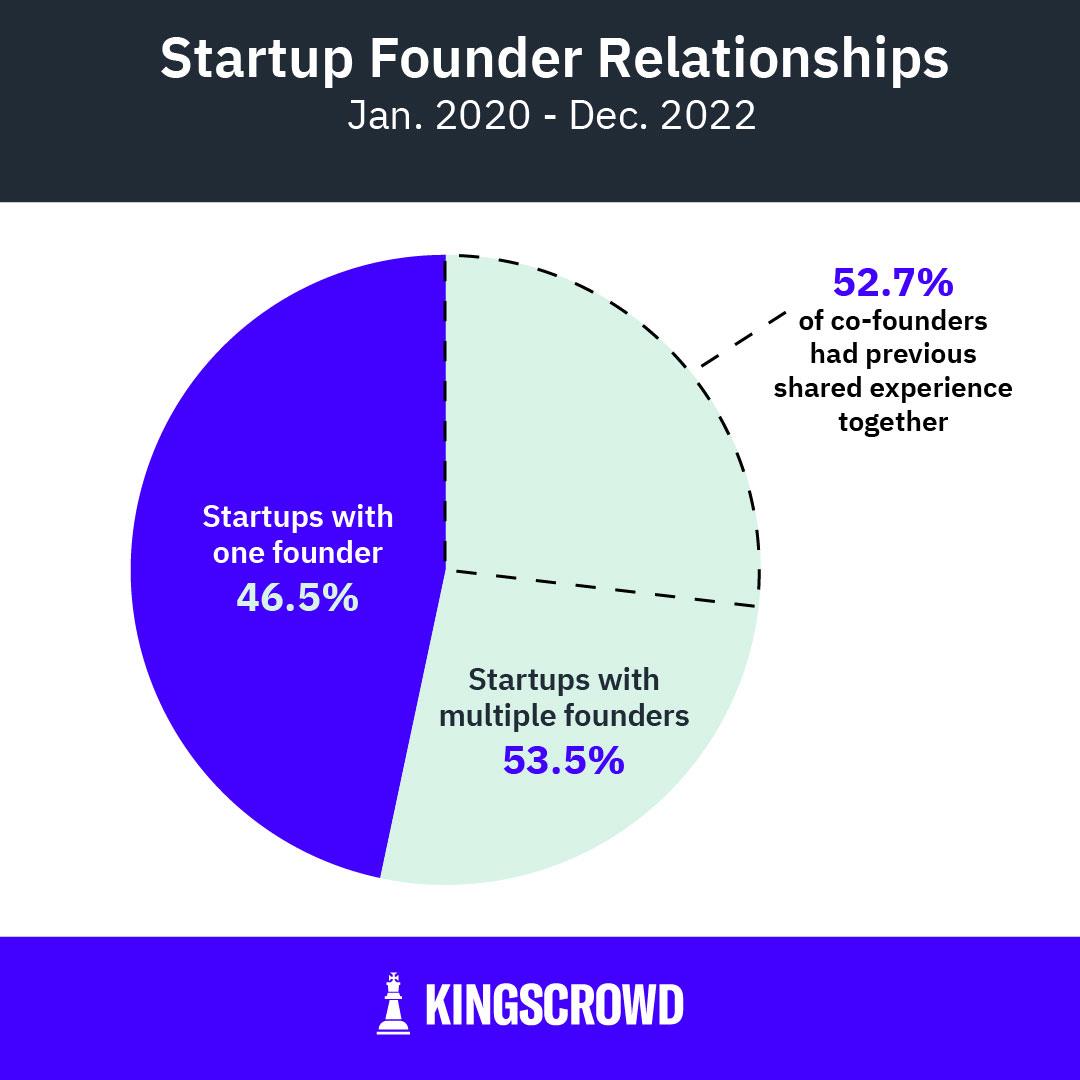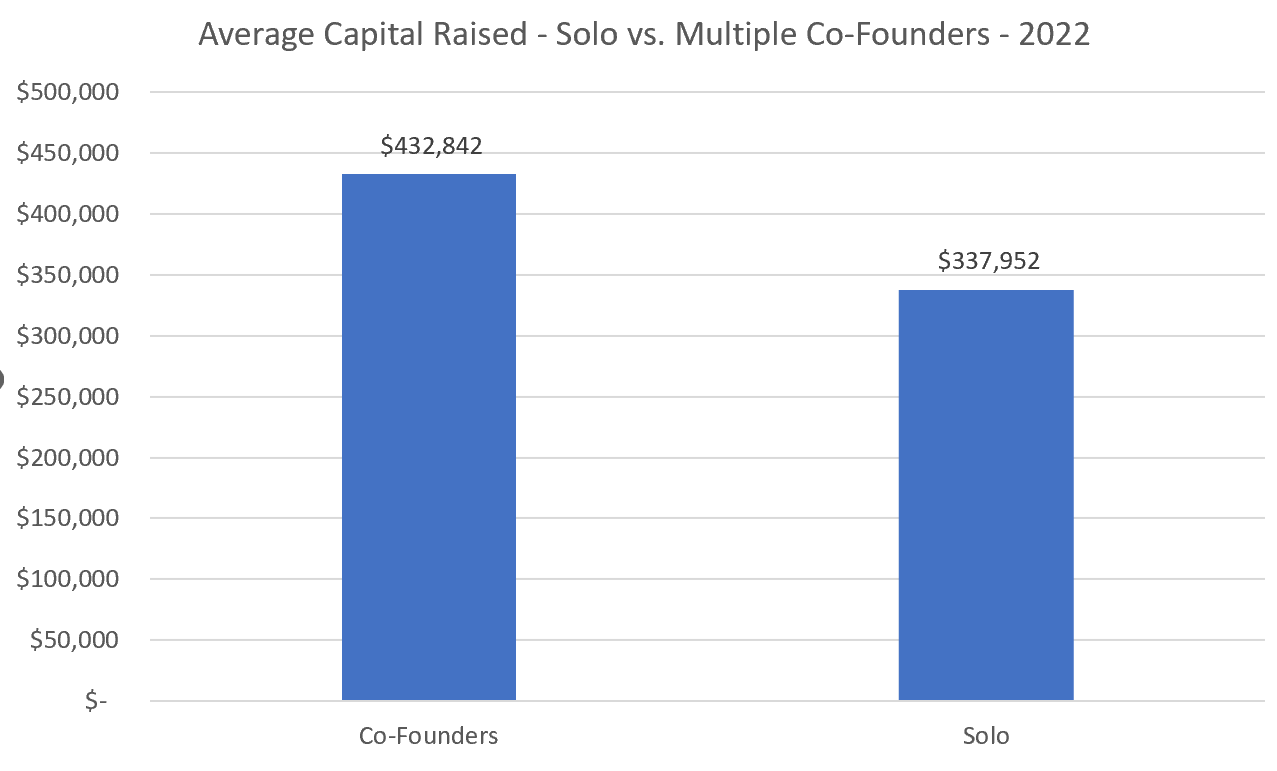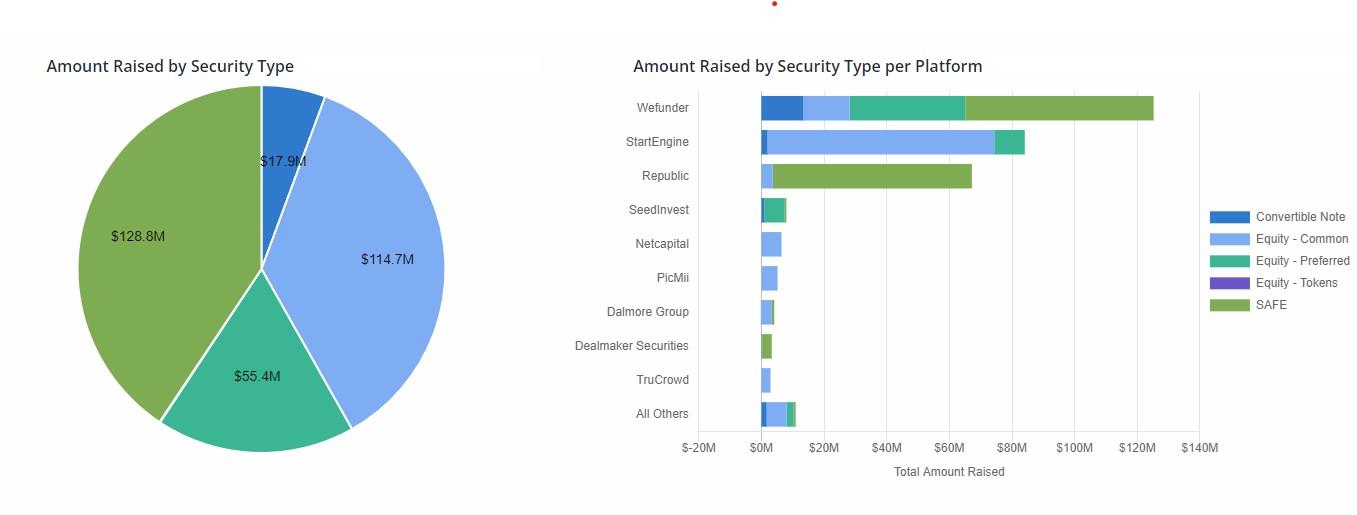Tags
Brian Belley Reg CF Online Courses Teacher Engineer Entrepreneur Equity Crowdfunding Investor Investor Crypto Equity Investing P2P Education Education & Training P2P Lending
Latest Knowledge Board posts



Biography
I’m passionate about building products that make investing in startups — and raising capital as a founder — simpler, smarter, and more accessible.
I’m currently the CTO and former Head of Product at Kingscrowd, where we’re building the data infrastructure for the $13T+ online private markets. Our goal is to give investors, founders, and platforms the same kind of data transparency and tools that public market investors have had for decades.
Before Kingscrowd, I founded Crowdwise.org and VentureWallet.co, which were both acquired by Kingscrowd back in 2021. I’ve also personally invested in 230+ startups through equity crowdfunding and syndicates, and serve on the Board of the Crowdfunding Professional Association (CfPA) and NE FIRST (ingenuityNE), helping to inspire the youth that will be our future technologists and leaders.
Earlier in my career, I spent over a decade in the defense and aerospace industry, starting as an engineer and eventually leading teams in operations — helping transition complex aerospace systems from design and prototyping into production on the new product introduction (NPI) pilot line. That experience shaped how I think about building reliable, scalable systems and leading cross-functional teams.
I’m a product-minded engineering leader who loves turning complex data into simple, useful experiences. I believe in servant leadership, helping teams grow, and building things that last. I still love to code (Vue/Nuxt, Python, PHP), and I’m constantly exploring how AI can make both our products and our processes better.
At the end of the day, I’m just someone who loves building and tinkering with the "new" things in technology. And I’m lucky that what I build helps democratize access to investing and entrepreneurship.
Experience
Founder and Owner
CrowdWise, LLC
May 2019 - July 2021
Founder, Teacher and Developer at Crowdwise.org, providing free investor courses, educational content, crowdfunding and early-stage investing industry data analytics, and tools for early-stage, private market investors.
Self-taught investor and full-stack developer (Flutter, React, Javascript, Python, PHP).
Angel Investor in 100+ early-stage private startups through equity crowdfunding.
Crowdfunding, angel investing, and venture capital industry data analytics and statistics.
Engineering Manager
BAE Systems, Inc.
June 2009 - May 2019
10 years as an Aerospace and Mechanical Engineer. Graduate of the Engineering Leadership Development Program in 2012.
Various roles, including: Aero/mechanical design engineer, Hardware Engineering Lead, New Product Introduction Engineering Manager.
Vice President of Product
KingsCrowd
July 2021 - present
Vice President, Product
Kingscrowd
July 2021 - July 2025
CTO
Kingscrowd
July 2025 - present
Education
University of Southern California
Master's Degree
2009 - 2012
Dual M.S. in Aerospace Engineering and Mechanical Engineering, with a focus on Computational Fluid Dynamics and Solid Mechanics
Rensselaer Polytechnic Institute
Bachelor's Degree
2005 - 2009
Graduated with a 4.0 average, numerous accolades and awards, including the highest academic record of the 2009 graduating class of undergrads.
Dual B.S. in Aeronautical and Mechanical Engineering
Dual Minors in Economics and French
Y Combinator - Startup Founder School
2018 - 2018
If you define "success" as the amount of capital raised, one can find the complete list of Reg CF raises and sort by "Amount Raised" on the KingsCrowd advanced company search table here:
https://kingscrowd.com/companies/search/?reg_type=RegCF
Since the amendments to Reg CF in March 2021, issuers can now raise up to $5 million dollars in a 12 month period.
As of July 30, 2023, 41 companies have raise the maximum $5 million under Regulation Crowdfunding (Reg CF), and an impressive 384 companies have raised between $1 million and $5 million, which includes all the raises that hit the $1.07 million maximum prior to March 2021.
In terms of companies that raised $5 million dollars, some of the ones that sold out their rounds and raised the $5 million the quickest (sometimes within a matter or hours or just a few days) are:
-Replit on Wefunder (April 2022)
-Substack on Wefunder (April 2023)
-Sound of Freedom on Angel Funding (June 2023)
-Mercury on Wefunder (October 2021)
-April on Wefunder (April 2022)
-Cultos on Republic (April 2022)
-Gumroad on Republic (March 2021)
There are a number of other raises that may have sold out their rounds in a matter of hours, but then took a longer time to close their rounds. All of this data can be determined from the KingsCrowd dataset by looking at the start/close dates and the average amount raised per day.
Yes - the US offers tax relief for investing in startups through various provisions in the tax code, including Sections 1202, 1244, and 1045.
Section 1202 - Qualified Small Business Stock (QSBS): Investors in qualified small businesses can exclude up to 100% of their capital gains from federal income tax if they hold the stock for more than five years, subject to certain limits and conditions.
Section 1244 - Small Business Stock Loss Deduction: Investors in certain small businesses can claim an ordinary loss deduction on their income tax return if the investment becomes worthless. This allows the loss to offset other income, with an annual deduction limit of $50,000 for single filers and $100,000 for married couples filing jointly.
Section 1045 - Rollover of Gains from Small Business Stock: Investors in qualified small businesses can defer capital gains tax on the sale of their QSBS if they reinvest the proceeds into another QSBS within 60 days. This rollover provision allows investors to maintain their tax-advantaged status while continuing to invest in the startup ecosystem.
For a more detailed explanation of these tax relief provisions, check out my article on Three Ways the US Gives Tax Relief to Startup Investors.
Also, for a more detailed guide that discusses other tax considerations for startup investors, you can check out my article Navigating Startup Investing Taxes - the Comprehensive Guide for Investors.
Please note that none of this should be construed as tax advice and is for informational purposes only - always consult a tax professional.
Before answering the question, it's important to understand the current state of how many equity crowdfunding companies are run by solo founders vs. two or more founders. From a recent KingsCrowd Chart of the Week, we can see that roughly 47% of all equity crowdfunding raises since 2020 were run by solo founders, while the other 53% had two or more co-founders.
With that perspective, let's look at some thinking around whether or not single founders or co-founders are more successful at raising funds.
Looking at 2022 data from KingsCrowd for raises that closed in 2022, here are the average amounts raised for Reg CF campaigns (equity and debt crowdfunding):
The data shows that companies with 2 or more founders raised $433k on average, while companies with solo founders raised $338k on average. That being said, there have still been some very successful campaigns run by solo founders, so this is by no means a hard rule.
There could be reasons in the data that skewed a higher average towards companies with co-founders. For example, it could be that later-stage companies (those with revenue that tend to raise more money on average) may have been around for longer and potentially recruited additional founders to the founding team, vs. those founders who are just getting started out.
However, there could be other reasons that lead investors to invest more in companies with co-founders.
A company with co-founders may be a signal to investors that the product and mission are something that isn't just in the mind of a single individual, but something that has the potential to capture the passion of multiple founders. This could also indicate potential about one (or more) of the founders' abilities to sell the vision and the business potential to others.
Multiple founders may also be looked upon favorably by investors as a system of redundancy. Life happens and startups are hard, and it could be more reassuring to know that there are multiple founders on a team providing support to one another and encouraging each other to continue with the going gets tough.
Co-founders can also use their combined network of contacts to seek out and establish relationships with investors, which provides greater access to potential funding opportunities than if a single founder was pitching alone. Finally, many large investor groups prefer investing in companies with more than one founder because they feel it reduces risk by providing more oversight and management than an individual leader can provide on their own.
Therefore, while companies with single founders may have success in raising funds through investment crowdfunding platforms, co-founded companies may have a slight advantage when it comes to this form of fundraising.
Thanks for the question. Quick disclaimer: this is just my own personal preference and experience, this is not to be construed as investment advice! Each investor has their own reasons and criteria when investing, so you need to determine what that looks like for you.
When personally picking a company to invest in, for me, it comes down to two primary things:
1. Does it match my investment thesis (e.g. my "why" for investing - whether it's a company I am passionate about, a market I think will be huge, a technology that I believe could change the world), and
2. Due diligence - e.g. are there any red flags? Are the deal terms fair? etc.
For point one: I recommend investors reflect on the reasons they are investing and what they want to achieve. Are you only looking to maximize financial returns? Do you care about social impact? Are you trying to support local small businesses?
For point two: personally, I follow a "5 T's" approach to due diligence. Due diligence is a topic that could fill volumes by itself, but you can read more about due diligence in two articles I wrote and videos I made:
Due Diligence Part 1 - https://crowdwise.org/crowd-investing-101/due-diligence-101-overview-for-crowdfunding-investors-part-1/
Due Diligence Part 2 - https://crowdwise.org/crowd-investing-101/due-diligence-101-part-2-the-1-reason-why-startups-fail-and-how-to-screen-deals/
There are also services out there that will aggregate and review deals to help investors scale their due diligence, such as KingsCrowd (disclaimer: I am currently VP of Product at KingsCrowd).
And ultimately, you should always go to the campaign page and read all the details, including all deal terms. Another gem of information on these pages are the investor Q&A sections. You can not only post your own questions to be answered by the founder, but you can read other insightful questions from potential investors of all backgrounds.
I always read the Q&A. You can learn a lot about the company and how they communicate and handle tough questions.
Happy investing!
Here is a breakdown from KingsCrowd for the most popular security types for Regulation Crowdfunding (Reg CF) in 2022 so far:
As the figures show, the most popular security types in Reg CF in 2022 are:
1. SAFE (Simple Agreement for Future Equity) - $128.8M, 41%
2. Equity (Common) - $114.7M, 36%
3. Equity (Preferred) - $55.4M, 17%
4. Convertible Note - $17.9M, 6%
One can see that the type of security offered also various by platform, as platforms tend to prefer (or avoid) certain financial instruments.
For example, SAFEs are the most popular on Republic and Wefunder, while StartEngine is primarily Equity (Common).
For more details on security types in equity crowdfunding deals and their differences, check out the article I wrote here:
https://crowdwise.org/crowd-investing-101/part-4-deal-types-equity-crowdfunding/
I'm not a tax advisor, but you might want to look into Section 1244 losses and if you might qualify.
https://crowdwise.org/taxes/three-ways-the-us-gives-tax-relief-for-investing-in-startups/
At the very least, your losses should qualify as capital losses, similar to if you bought a stock and it went to zero.
This means that you enabled Two Factor authentication (2FA) as an additional security measure for logging in to your account. You need the Google Authenticator app on your phone to get the 2FA coffee required to log in.
For the complete answer we drafted to answer this, please read our complete blog post on Traditional SAFE vs. Crowdfunding SAFE.
A brief summary of some of the key differences include:
1. Crowdfunding SAFEs may have optional conversions: in some crowdfunding SAFEs (such as Republic’s Crowd Safe), shares convert at the next equity financing round at the discretion of the issuer (i.e the startup). While most traditional SAFEs are forced to convert at the next qualified financing round, many crowdfunding SAFEs give the company the option to either convert to equity or defer conversion until a later time.
While this may sound like a bad thing for investors at first, there are situations when investors can actually benefit from this delayed conversion (e.g. they may actually experience less dilution due to follow-on raises than other equity investors).
2. Crowdfunding SAFEs may convert to Shadow Series shares: in the Republic Crowd Safe, the SAFE may convert to shadow shares, which means the same class of shares (e.g. Common vs. Preferred) as other investors, but with limited voting and information rights.
3. Crowdfunding SAFEs Investing via an SPV: When you invest in a SAFE on Wefunder, you’ll often be investing in a Special Purpose Vehicle (SPV). While this is typical for angel investors on sites like AngelList, this means you’ll actually be investing in the SPV (e.g. “Company X, a Series of Wefunder SPV LLC”), and not be directly investing in the company itself.
Investing in an SPV may have potential tax implications (because the SPV is an LLC). Furthermore, investing in an SPV may have implications in terms of the potential future liquidity of that investment due to complications when listing SPV shares on a secondary market.
4. Many Crowdfunding SAFEs are still Pre-Money: while the standard Y-Combinator SAFE was changed to convert based upon post-money valuation in 2018, many of the SAFEs used on crowdfunding sites today are still using pre-money valuation for the conversion price.
5. Some Crowdfunding SAFEs may have repurchase rights: something that most VCs and angel SAFEs would never have is a “repurchase rights” or “redemptive clause”. These terms allow the company to buyback SAFE investors at the company’s discretion, which typically happens if a later-stage VC wants to “clean up” the cap table (i.e. get more control and ownership for themselves) or when the company is doing well and wants to buy out early investors. It's my personal opinion that investors should typically avoid SAFEs with these terms. These terms put the company’s best interests at odds with that of the investors’.
The good news is that I personally have not seen any SAFEs recently with these repurchase terms (although I have seen some Common Stock offerings on some platforms with repurchase rights, so be careful!). It seems that crowdfunding portals have realized that these repurchase rights often end poorly for investors and are used by issuers who might not have their crowdfunding investors’ best interests at heart.
Hi Derrick,
If you invested on Republic.co, you should be able to check your investments if you:
1. Log in
2. Hover over your click the drop-down in the top right
3. Select "My Portfolio"
4. You can then click on any of your investments to read updates.
You can also hover over the lightning bolt next to your picture, which will display all the updates for companies you follow, have invested in, etc.
Hope this helps!
Best,
Brian




